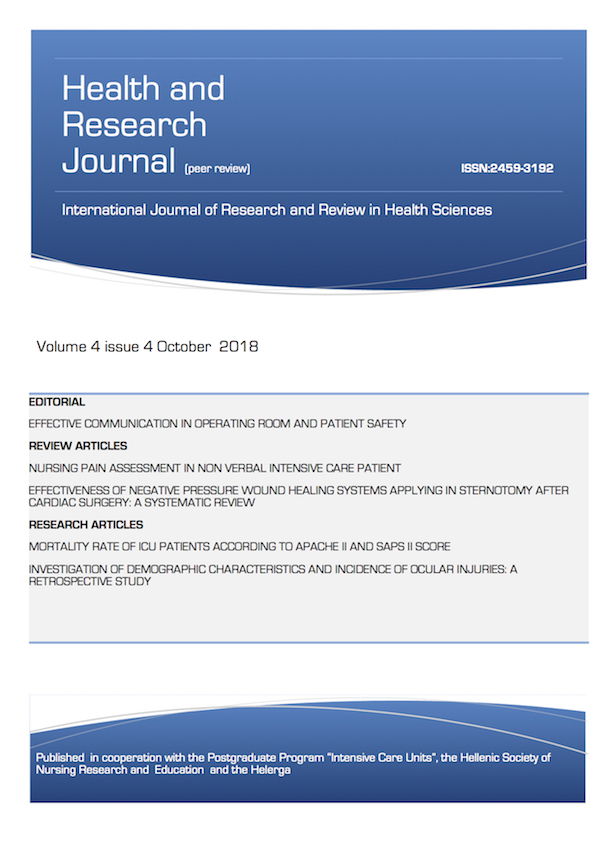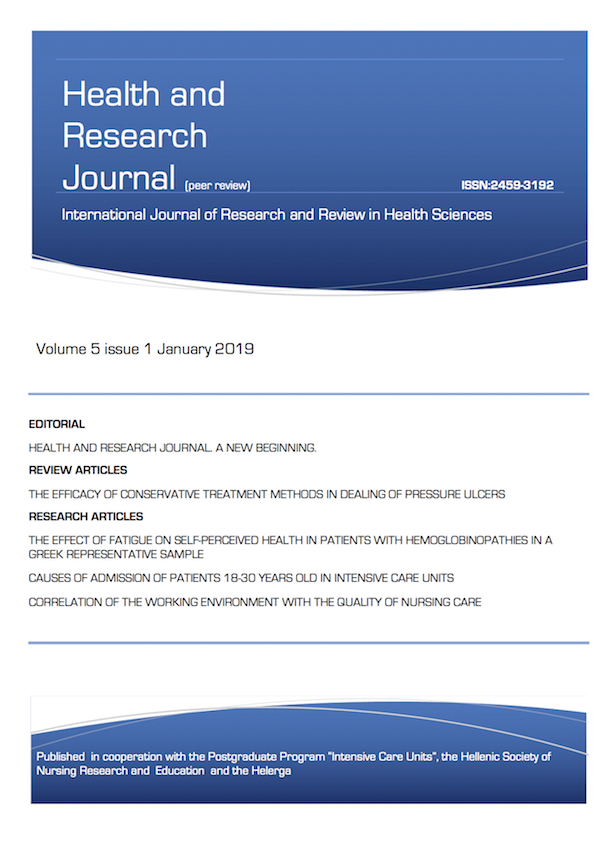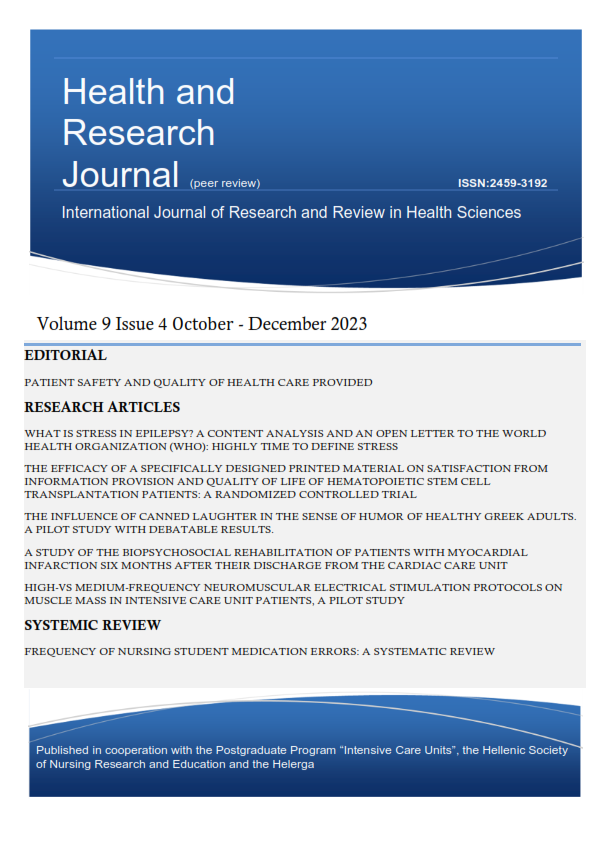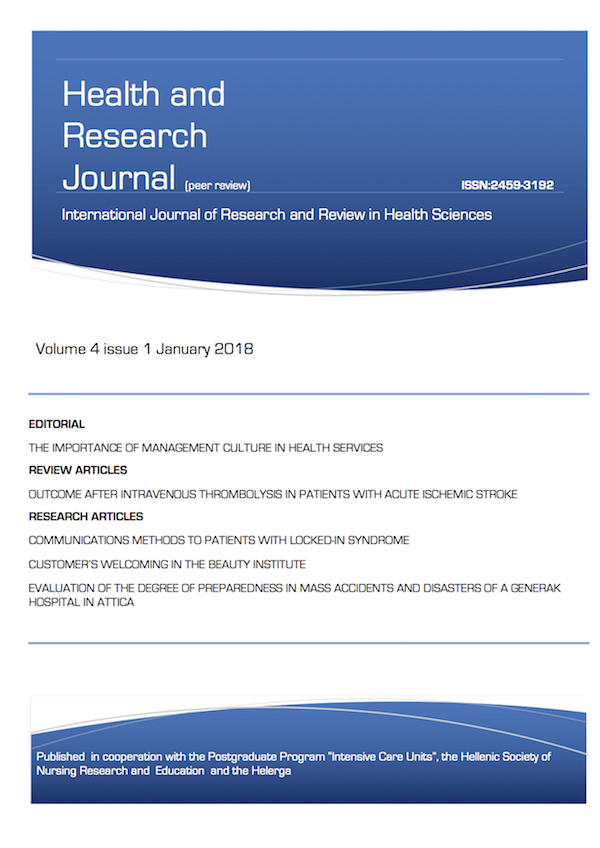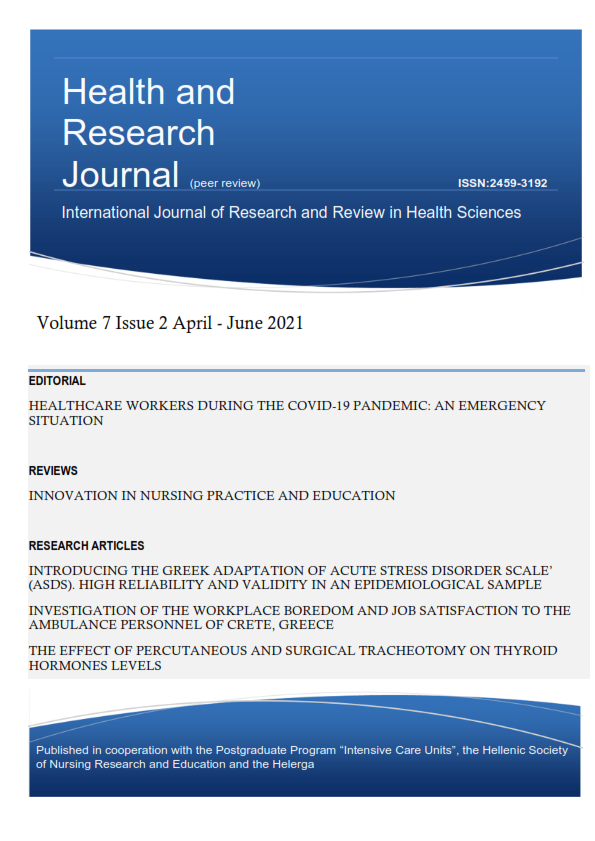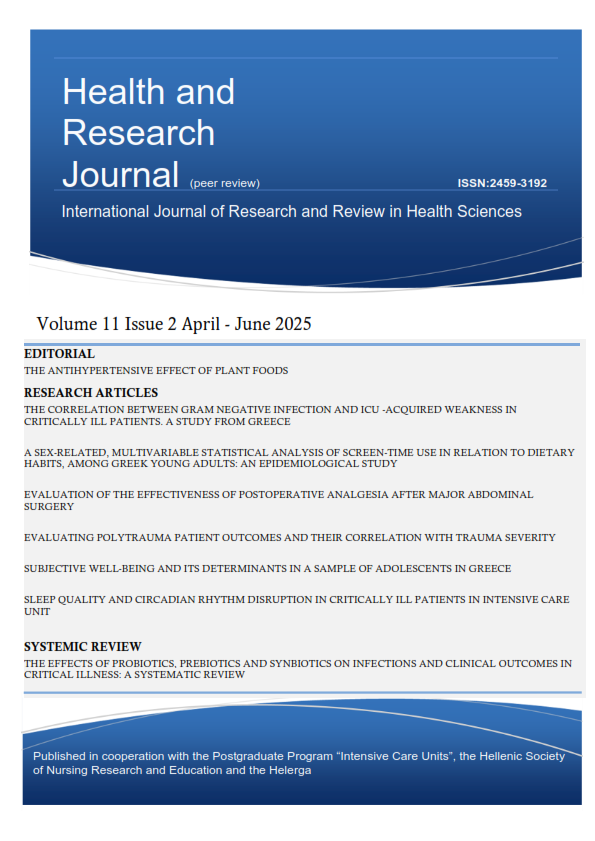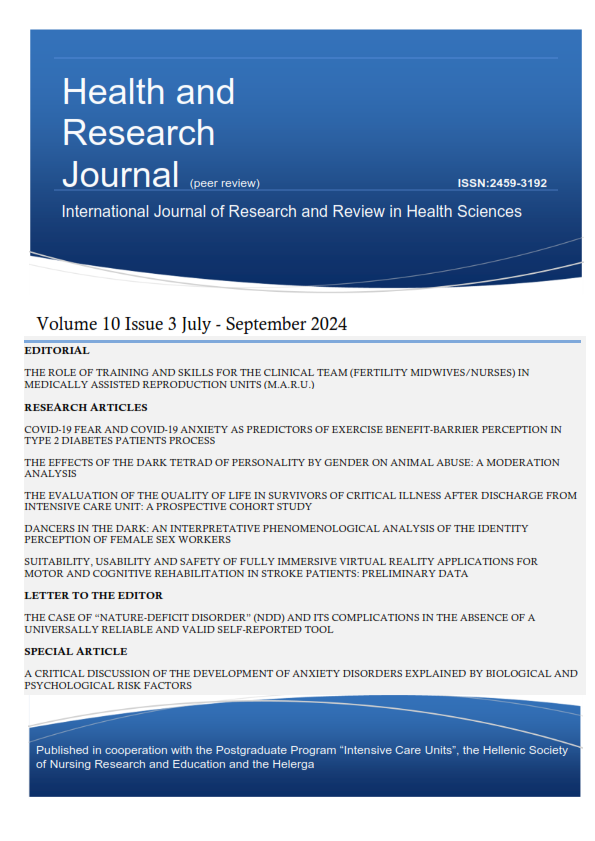The Greek version of the Richards‐Campbell Sleep Questionnaire: Reliability and validity assessment
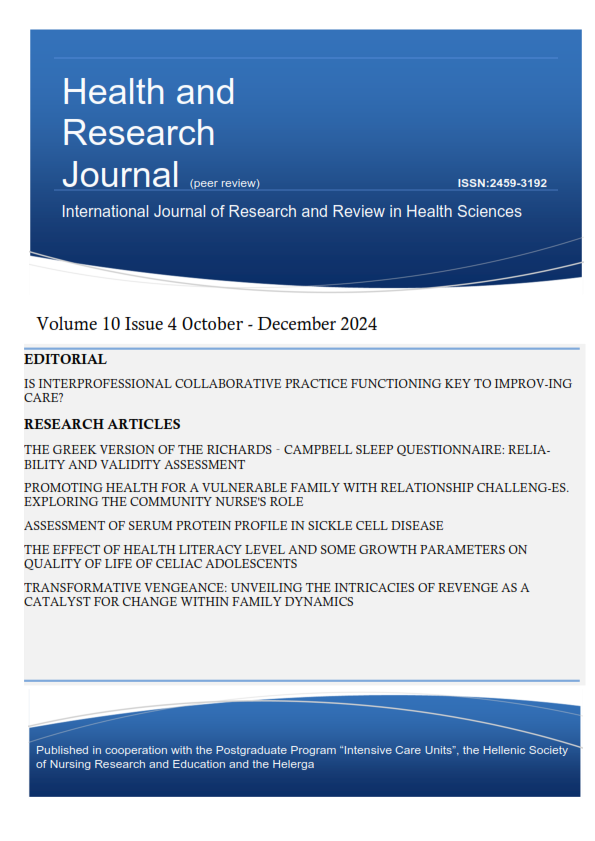
Abstract
Background: The lack of sleep is a significant concern for ICU patients, necessitating effective sleep-promoting interventions by nurses. A user friendly and reliable tool is essential for Greek nurses to evaluate the impact of these interventions on patients' sleep. This study aimed to translate the Richards Campbell Sleep Questionnaire (RCSQ) into Greek and ascertain the reliability and validity of this version in measuring sleep quality among ICU patients in a Greek hospital.
Method and Material: The study assessed the night-time sleep of 50 patients in the general ICU of a tertiary hospital in Athens, Greece, from January 2022 to March 2023. The translation of the RCSQ into Greek adhered to all guidelines for translating and adapting psychometric scales. The reliability of the RCSQ scale was tested using Cronbach's alpha (𝛼).
Results: The study included 32 male and 18 female patients. Cronbach's alpha (𝛼) was calculated to be 0.906, indicating excellent reliability for the RCSQ. The overall mean RCSQ score was 52.8 (SD=15.41), ranging from 12 to 78. About 60% of participants reported "good sleep", while 8% experienced "very poor sleep".
Conclusion: The assessment of patient sleep should utilize a valid and reliable instrument. The Greek version of the RCSQ shows great promise for use in Greek hospital settings. It is concise, user-friendly, and comprehensible, and it has demonstrated reliability and validity in capturing various sleep domains, thereby providing a comprehensive assessment of sleep akin to the original version.
Article Details
- How to Cite
-
Sampani, C.-A., Charalampopoulos, M., Triantafyllaki, P., Triantafyllou, C., & Papageorgiou, D. (2024). The Greek version of the Richards‐Campbell Sleep Questionnaire: Reliability and validity assessment. Health & Research Journal, 10(4), 223–232. https://doi.org/10.12681/healthresj.36223
- Section
- Original Articles
Copyright notice:
The journal "Health and Research Journal" reserves the rights for copyright of the content of the website and also the copyright of the articles published.
By virtue of their appearance in this journal, the articles are free to be used for non-commercial purposes. However, the articles cannot and must not be used in anyway, published elsewhere or modified without any reference to the author and the first publication of the article.



